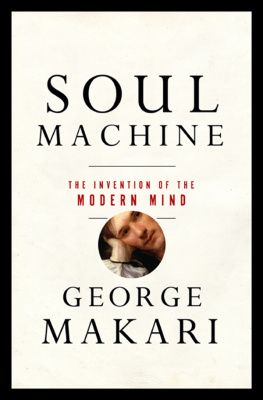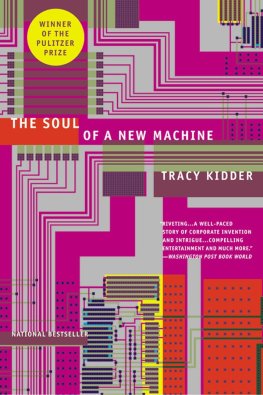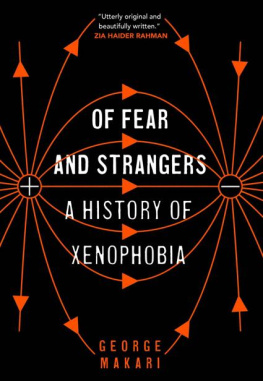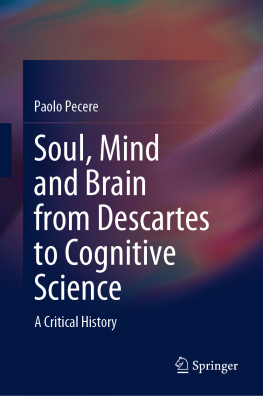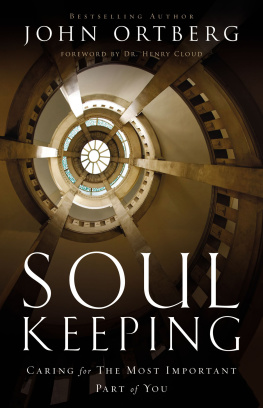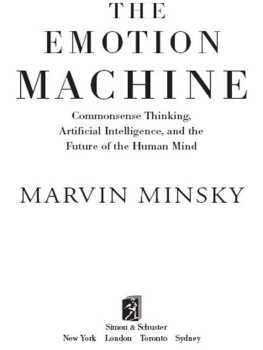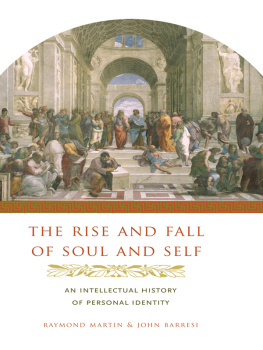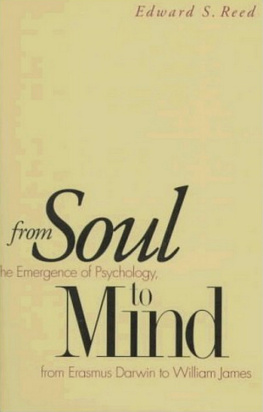
ALSO BY GEORGE MAKARI
Revolution in Mind:
The Creation of Psychoanalysis
Copyright 2015, by George Makari
All rights reserved
First Edition
For information about permission to reproduce selections from this book,
write to Permissions, W. W. Norton & Company, Inc.,
500 Fifth Avenue, New York, NY 10110
For information about special discounts for bulk purchases, please contact
W. W. Norton Special Sales at specialsales@wwnorton.com or 800-233-4830
Book design by Ellen Cipriano Design
Production manager: Julia Druskin
ISBN 978-0-393-05965-6 (hardcover)
ISBN 978-0-393-24869-2 (e-book)
W. W. Norton & Company, Inc.
500 Fifth Avenue, New York, N.Y. 10110
www.wwnorton.com
W. W. Norton & Company Ltd.
Castle House, 75/76 Wells Street, London W1T 3QT
For my parents, Jack and Odette Makari,
and especially, for Arabella
Contents
IMAGINE A TIME in the future when your mind might travel. Perhaps it would enter a different torso or a foreign face. Would you still possess the same self, the same being? Our minds, most of us would agree, define us; they carry our personhood, and where they go, we go too. In Western culture, much depends upon this belief; it underpins a great deal of our literature, art, politics, and jurisprudence. It is the foundation of the commonsense psychology so crucial to social life. The concept of the mind is everywhere, and yet at the same time, it is strangely nowhere. The most powerful arbiter of truth in contemporary life, natural science, refuses to ratify this belief. While our own psyches seem abundantly clear to us, attempts to objectively establish their existence have been mired in seemingly insoluble problems. And so, while the mind remains central to 21st-century Western thought, a number of prominent neuroscientists and philosophers inform us that it surely does not exist.
Soul Machine is an attempt to untangle these contradictions by returning to their origins, the beginning of the modern age, when religious beliefs, philosophy, medicine, science, and political power were all in flux. The emergence of the mind as a formative, if always embattled, belief, cannot be understood outside this historical context; it was never the result of a timeless debate in which Plato, Kant, and Wittgenstein argued over dinner. Instead, this book recovers a lost lineage, parts of which have been long discarded as embarrassing, wrongheaded, or irrelevant. This collective forgetting has led to impoverished, skewed discussions among different specialists, and no broad, historical account of how the modern mind emerged.
The invention of the mind was not the result of sedate academic debate. The mind was a radically destabilizing, heretical idea that grew out of intense, often violent, conflict. Far from being a story of scholarship alone, this history begins and ends in bloodshed. Characters in this account include thinkers writing at their desks, but also wild-eyed prophets, doctors whose spare rooms were littered with carcasses, political spies, bitter refugees, witches, quacks, and pornographers. This story takes place in universities, courts, hospitals, London coffeehouses and Paris salons, but also on battlefields, in lunatic asylums, poorhouses, and prisons. For better or worse, advocates and enemies of the mind were not sequestered in their studies. Often they could be found at the barricades.
Any history of the modern mind must begin with its ancient origins. By the time Socrates lifted the chalice of poison to his lips, over two centuries of thought about the immortal soul had preceded him. Later when ancient Greek thought merged with the Christianity of the Church Fathers, a soul-based view of human nature became one of the ruling conceptions of Western belief. In Christendom, the soul was the knot of the universe, the unifying link between nature, man, and God, and the single most prized human attribute. It provided believers with universal dignity, repose before a bewildering, brutal world, and consolation in the face of death.
By the middle of the 17th century, however, these same beliefs were seen as a rich source of corruption, unceasing strife, terrorism, and cruelty of vast dimensions. For decades, Christian sects waged war with each other over competing claims regarding the soul and its salvation. Emerging challenges from natural science combined with long-standing political instability to create a crisis. While the soul and the psyche were once understood to be synonymous, some thinkers now advanced a radical idea. What if the mind was not so much spirit as it was bodily? What if thinking matter existed within human flesh? An object, this mind would still somehow house human subjectivity. Endowed by God, it still would be material, and therefore sicken and die. A naturalized mind first emerged wrapped in these enigmas.
Once modernity gave birth to the theory of an embodied mind, the implications were grave. If it wasnt the soul but rather a fallible mind that made men and women think, choose, and act as they did, then long-standing beliefs were erroneous. Convictions regarding truth and illusion, innocence and guilt, health and illness, the rulers and the ruled, and the roles of the individual in society would need to change. Not surprisingly, therefore, from its inception this concept was considered scandalous. Early advocates surrounded themselves in clouds of ambiguity; they published anonymously and when discovered, quickly fled from red-faced censors and mobs. Monarchs and theologians decried these heretics and roused their forces against them. Most natural scientists also opposed this bizarre notion. For if human agency and intention emerged from within matter, than their own mechanistic beliefs about the natural world were surely wrong.
Considered both heretical and unscientific, this idea still did not die. After 1700, the mind took hold among thinkers in England, Scotland, Holland, France, Switzerland, the American colonies, and the Austrian and German territories. Over the next century, as the feudal order crumbled, theories of mental life bloomed along with liberalism, egalitarianism, hedonistic ethics, individualism, political toleration, and the rational logic of the Enlightenment.
During the second half of the 18th century, a further shift took place in this emerging, often clandestine discourse. If our mental activities were truly part of bodily processes, then they needed to be studied not just by ethicists and philosophers, but also physiologists, anatomists, and doctors. Hybrid discourses began to appear as medically sophisticated philosophes and philosophical physicians offered bio- and psychopolitical theories for their rapidly changing world. New experts generated novel, if highly unstable, fields of inquiry, such as animal magnetism, phrenology, anthropology, human science, psychology, mental medicine, and psychiatry.
As the general prestige of science rose, these would-be Newtons of mental life sought to link data from experience and introspection with revelations about anatomynerves, twitching muscles, and brain structures. New taxonomies for mental differences and diseases were created. Once the province of theology, ethical and behavioral norms began to be codified in medical terms, a process that continues to this day. As these beliefs spread through the broader population, alongside Christians who feared for their souls, there now stood those jittery moderns who faced the terror of losing something that not long ago they did not know they possessed, their minds.
During the 18th century, the idea of an embodied mind supported belief in the rule of reason, liberty of conscience, the contingency of human knowledge, self-governance, and the personal pursuit of happiness, as well as mans vulnerability to bias, error, mania, and delusion. With the French Revolution, these notions burst out into the open and were freely pursued more than ever before.
Next page
